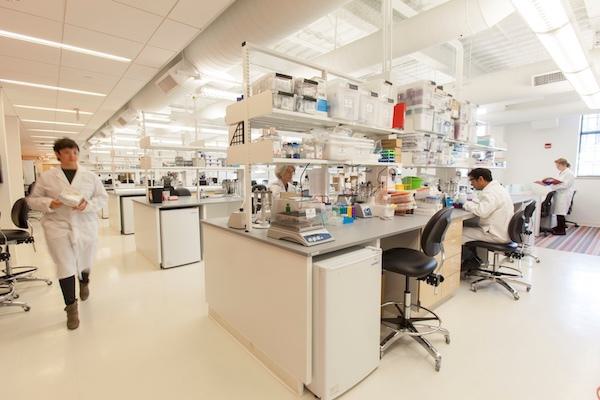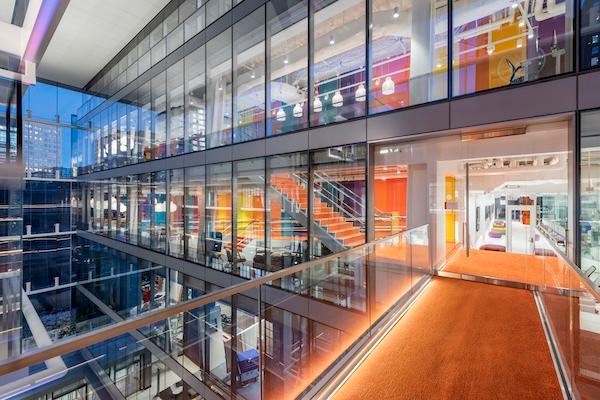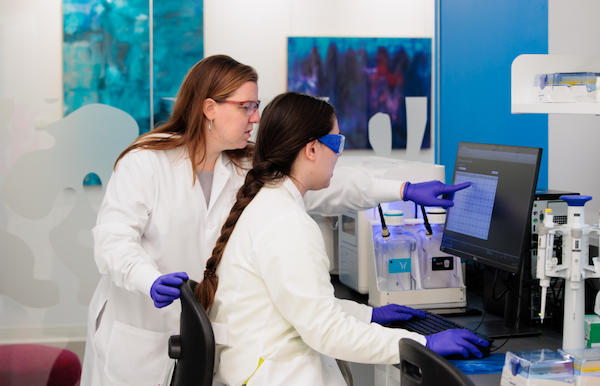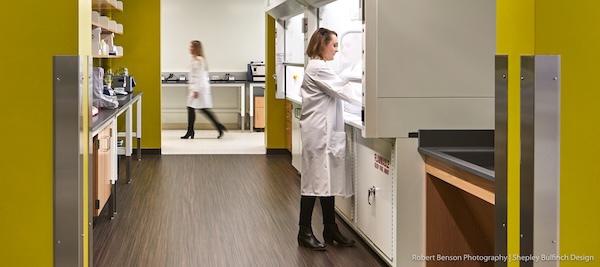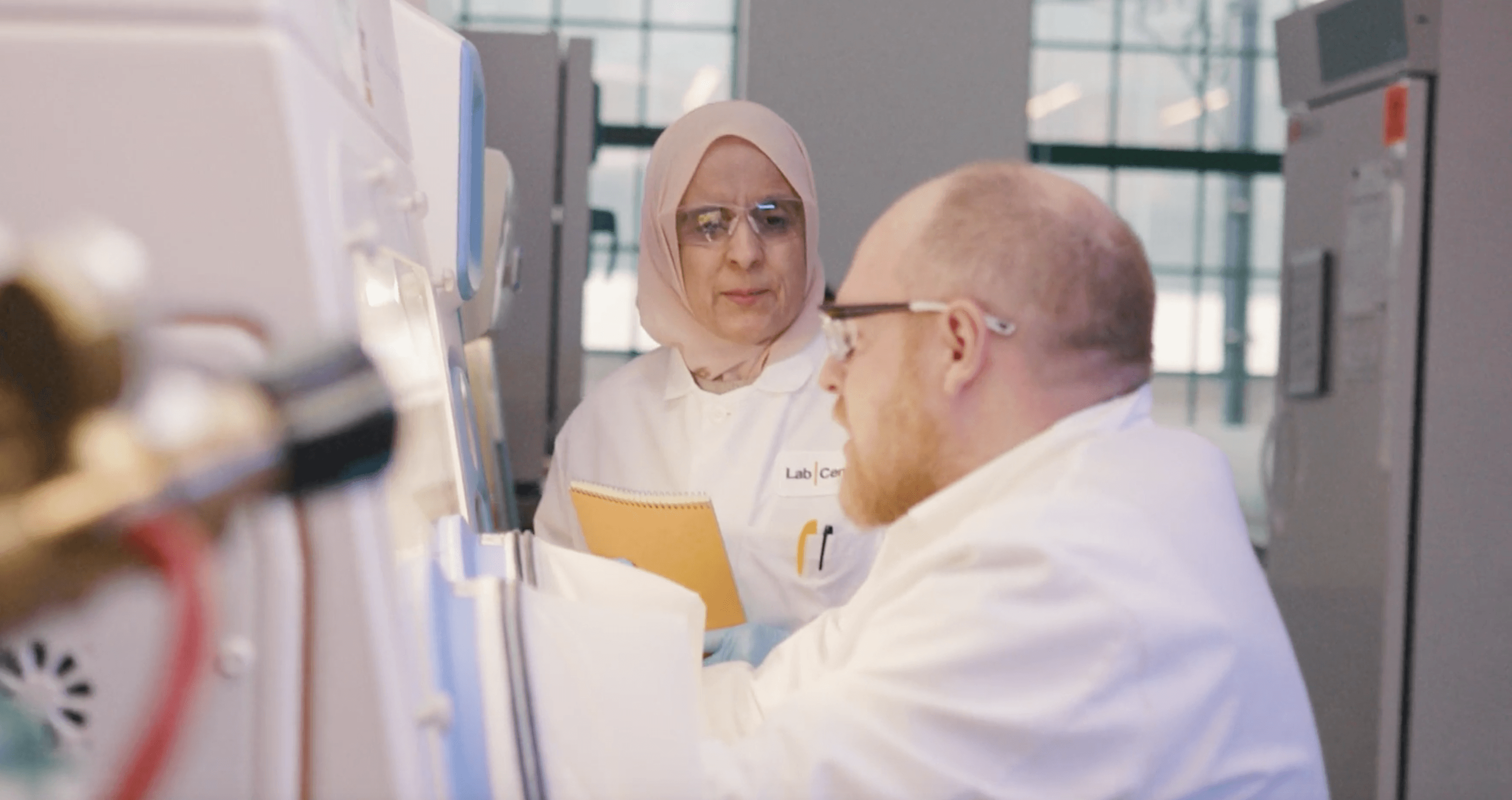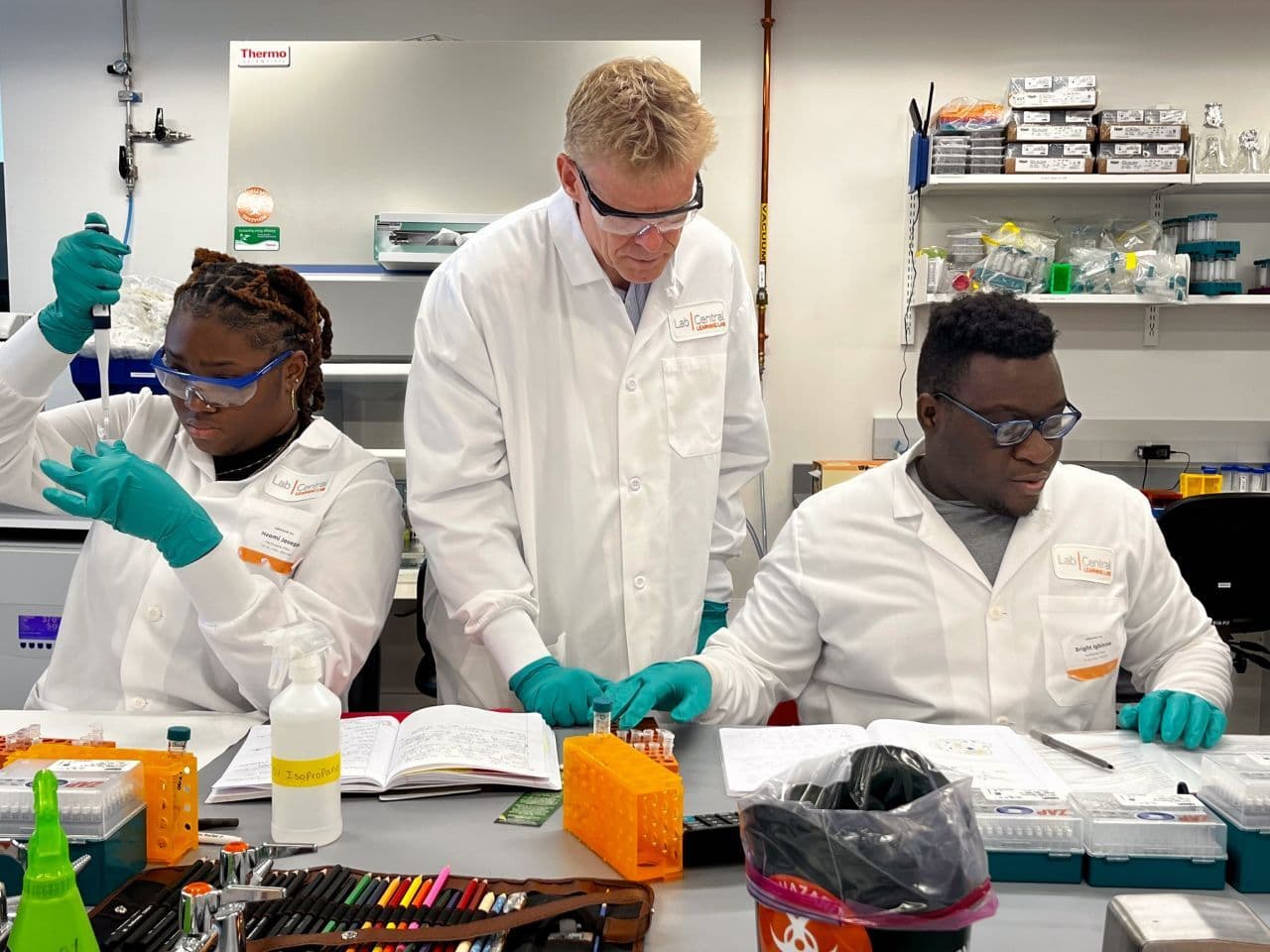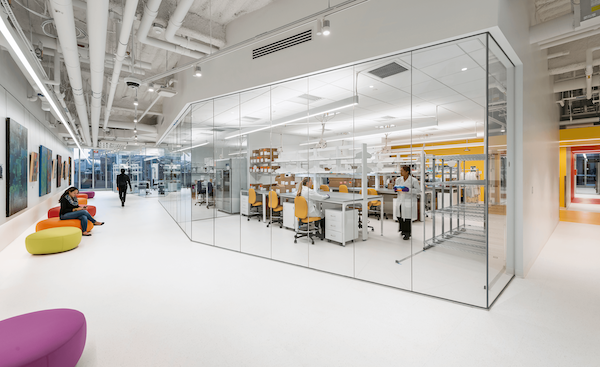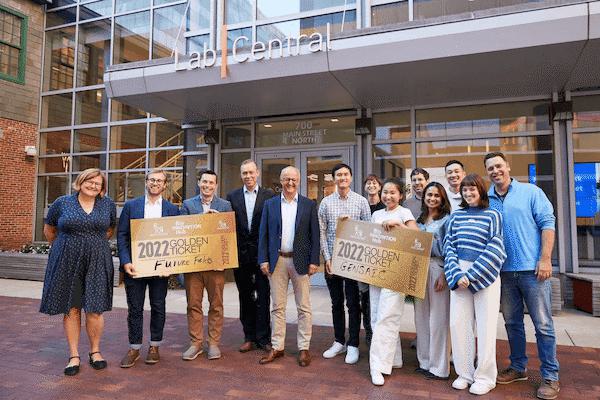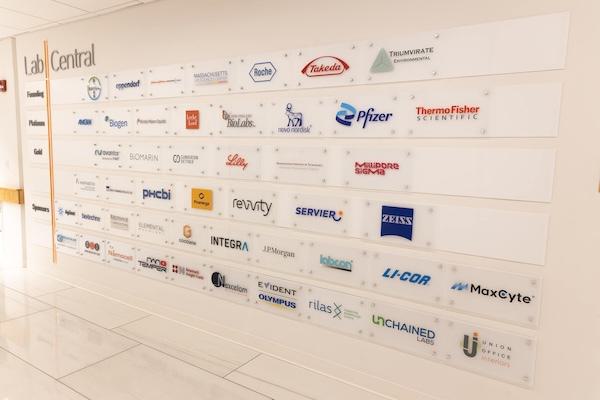Disclaimer: the views, thoughts, and opinions expressed in this blog belong solely to the individual author, and not to LabCentral or the author’s employer, organization or committee.
It’s well established that having diverse talent in the workforce is important to the development of new ideas and innovations. In biotech, this can translate to groundbreaking new drugs, diagnostics, and therapies. This, in turn, can also benefit the economy, helping to stimulate more job creation and market growth. And yet, just 12% of biotech and life sciences CEOs are people of color, and only 30% are women. It can be exceedingly difficult for anyone without a Bachelor of Science degree, at a minimum, to get their “foot in the door” in this industry.
Earlier this year, we launched LabCentral Ignite, a multi-pronged initiative aimed at changing this paradigm by sparking – or “igniting” – systemic changes in STEM education, talent development, placement, and entrepreneurship. The goal is to break down financial, social, and academic barriers that can make it hard to enter the biotech field, bringing underrepresented groups into the fold.
We know it’s not enough to just talk about change, which is why we’re excited to be making steady progress towards substantive change. This fall, we are launching our Career Forge program to support successful placement of talent from traditional and underestimated educational pathways. In addition, we have already invested $185K in impactful nonprofits focused on STEM education and workforce training, with more funding to come. We are seeing the benefits of that investment in various ways.
As just one example, we recently talked with Werner Meier, chief scientific officer at Revitope Oncology, a startup that’s transforming the way immunotherapeutic drugs are designed. Meier is bringing in lab interns through a variety of schools, one of which is the Gloucester Marine Genomics Institute (GMGI). Addressing critical challenges facing our oceans, human health, and the environment through innovative research and education, GMGI is one of LabCentral’s Ignite grantees. Our grant supports GMGI’s Gloucester Biotechnology Academy, a 10-month certificate program that prepares students to go straight into careers as entry-level technicians in biotech and life sciences labs. We also spoke to Beth Willcox, who was recently hired by Meier as a full-time lab research assistant, following an internship with the company, as part of her enrollment in the GMGI Biotechnology Academy.
Here’s an excerpt from our conversation.
Werner, you had a somewhat non-traditional start in biotech. Is this what drives your commitment to making it easier to for others to gain access into the field?
Yes, it’s certainly a big part of it. I grew up in Switzerland and worked as an apprentice at Ciba-Geigy, now Novartis, and I was fortunate to be able to learn “on the job” through a three-year program that included company-sponsored classrooms with both practical, hands-on work and theoretical education. At the end of it, I received a federal certificate that allowed me to work as a technician. Essentially, it’s the equivalent of vocational school here in the U.S. but specific to biotech. That early opportunity is what gave me the springboard into the field, and from that point, I continued to make connections and uncover new opportunities and have been able to grow and carve out a path for myself in the field.
But that type of trajectory, unfortunately, isn’t available to everyone. The field is generally more “closed” and is mainly accessible to those with traditional four-year and advanced science degrees, and by default, this often excludes people from underrepresented groups or different social or educational backgrounds in our society. This needs to change. I believe we need to give back to our communities, not just through transactional efforts like sponsorship, although of course that serves its purpose too. But more importantly, by creating opportunities within our own companies that make it possible for people from diverse communities and backgrounds to enter biotech, one of the most important industries in Massachusetts.
How did you decide to take on interns from the Gloucester Biotechnology Academy, and will you continue this moving forward?
This year, Revitope grew to the point where we had both the need for interns and the resources to properly mentor them. We knew we needed people with hands-on lab skills for two very specific areas – cell culture and protein expression and purification – and we also knew that these needs aligned with the highly practical training that GMGI is focused on.
Our first two interns, both of whom we subsequently hired (and one of whom is Beth!), quickly became part of our existing teams and were able to contribute meaningful data that increased our capacity and allowed us to get to decisions faster.
We’re extremely excited about continuing our internship program. It will likely include a mix of students with traditional degrees, as well as those from non-traditional paths like GMGI’s Academy. The technical expertise these students bring is so critical, and it’s instantly useful to us. And as our business needs evolve, we will certainly look to transition some of these interns to Revitope employees, as we’ve done with Beth and others.
Our experience clearly shows that providing springboards for folks that arrive in science through non-traditional educational routes is an avenue more biotech companies should consider. This will require a change in the typical biotech mindset that only traditional two or four-year college degrees can provide candidates with the “right” backgrounds and skill sets.
Do you think there is a need for more biotech-specific training programs like the Gloucester Biotechnology Academy? What’s at stake without them?
Oh, yes, without question. it would be incredibly valuable to try to replicate GMGI’s model in other areas within Massachusetts. Of course, it’s challenging financially, given the lab space and equipment requirements, which makes it hard for community schools and colleges.
But there’s no question we’re going to continue to see strong demand for people with hands-on, practical lab skills. And there are so many potential candidates who are passionate and eager but just don’t have that four-year science degree.
These people have to be able to get their “foot in the door” so we can scale the biotech talent pool to meet demand in the future. This is the roadblock we’re working to change, and it’s where programs like GMGI’s come in. Of course, their career trajectory depends on many factors, including their aptitude and contributions, but once they’re in, the path is open to them, and it’s theirs to shape. It only ends when they want it to.
Beth, can you tell us about your background? What interested you about the certificate from the Gloucester Biotechnology Academy?
My academic background is definitely not typical. I grew up in Rockport and was homeschooled. I never felt like public school could offer me the education I was looking for. One of the subjects I became really passionate about was physics, but I just didn’t know how to turn that into a career, and I wasn’t sure where to start. In my senior year, I was planning for a “gap year” before starting college, but then COVID hit, and I came across GMGI. I immediately put my plans on hold to enroll in the certificate program through the Academy. That catapulted me into the internship, and now here I am, with an incredibly interesting job.
Before I learned about GMGI, I mainly only saw standalone classes related to biotech or traditional college programs, but I hadn’t seen anything as comprehensive and hands-on that could help me transition quickly into a job in the field. I’m really hoping it will inspire other programs like it.
What was the experience at GMGI like?
It was very intensive and exciting, and I feel so fortunate that I found GMGI. The Academy program was rigorous and intensive but also exciting, and they really supported me following my own path.
Going through the program during COVID made things somewhat challenging, but only because we had to wear more PPE than normal, for health and safety reasons. Luckily, the class sizes are small – only about 15 people – so we were able to continue all of the classes and hands-on training in-person, which was great.
How has it prepared you for biotech, and were you able to hit the ground running? What kinds of projects were you able to take on?
The Academy provided an excellent balance of hands-on work, along with theory, in a way that was immediately helpful and applicable to my job now, as a lab assistant at Revitope.
Even as an intern, I took on quite a few projects and was able to help with a good portion of the workflow right away, including preparing plasmid DNA, using the plasmids to grow protein in mammalian cells, harvesting the molecules, and quality control and purification for those molecules, among other things.
When I was hired at Revitope, it felt like a natural continuation of the work I had been doing as an intern. It’s been a really smooth transition, and I’m taking on more responsibility and learning more all the time.
What are your plans/goals for the future?
I really like working in an R&D lab. It’s exciting to work on developing something new, and to be seeing the constant changes in our experiments, always looking for results and having to adjust what I’m doing. Nothing is ever static. I’m also interested in the health and medicine side of things. I like to think our work might help someone, even if it’s years down the road. That’s a really big motivator for me.
I actually do want to go to college at some point to dive deeper into certain aspects of what I’m interested in. But that might be in a few years. I’m not in any rush. I’m very happy with where I am right now.
GMGI’s Biotechnology Academy has really given me a start in this field that I might not have gotten otherwise. I hope programs like this becomes more accessible to more people over time, so others like me can gain the skills sets they need to put their passion for biotech to work.
LabCentral & Revitope Featured on NECN
Watch LabCentral’s Krista Licata and Revitope Oncology’s Werner Meier and Beth Willcox talk about biotech diversity with NECN Host Brian Burnell.
See the interview here!
